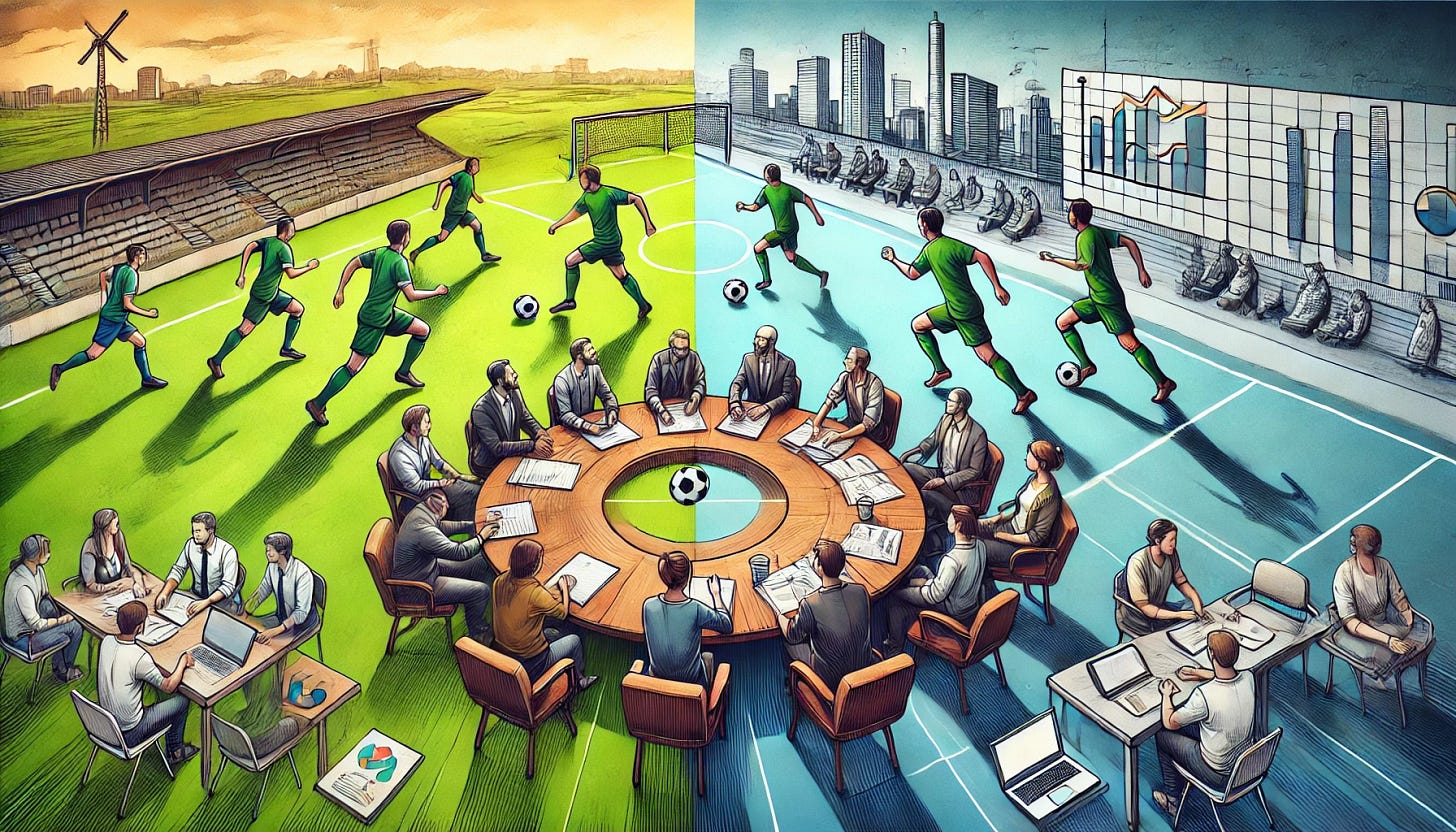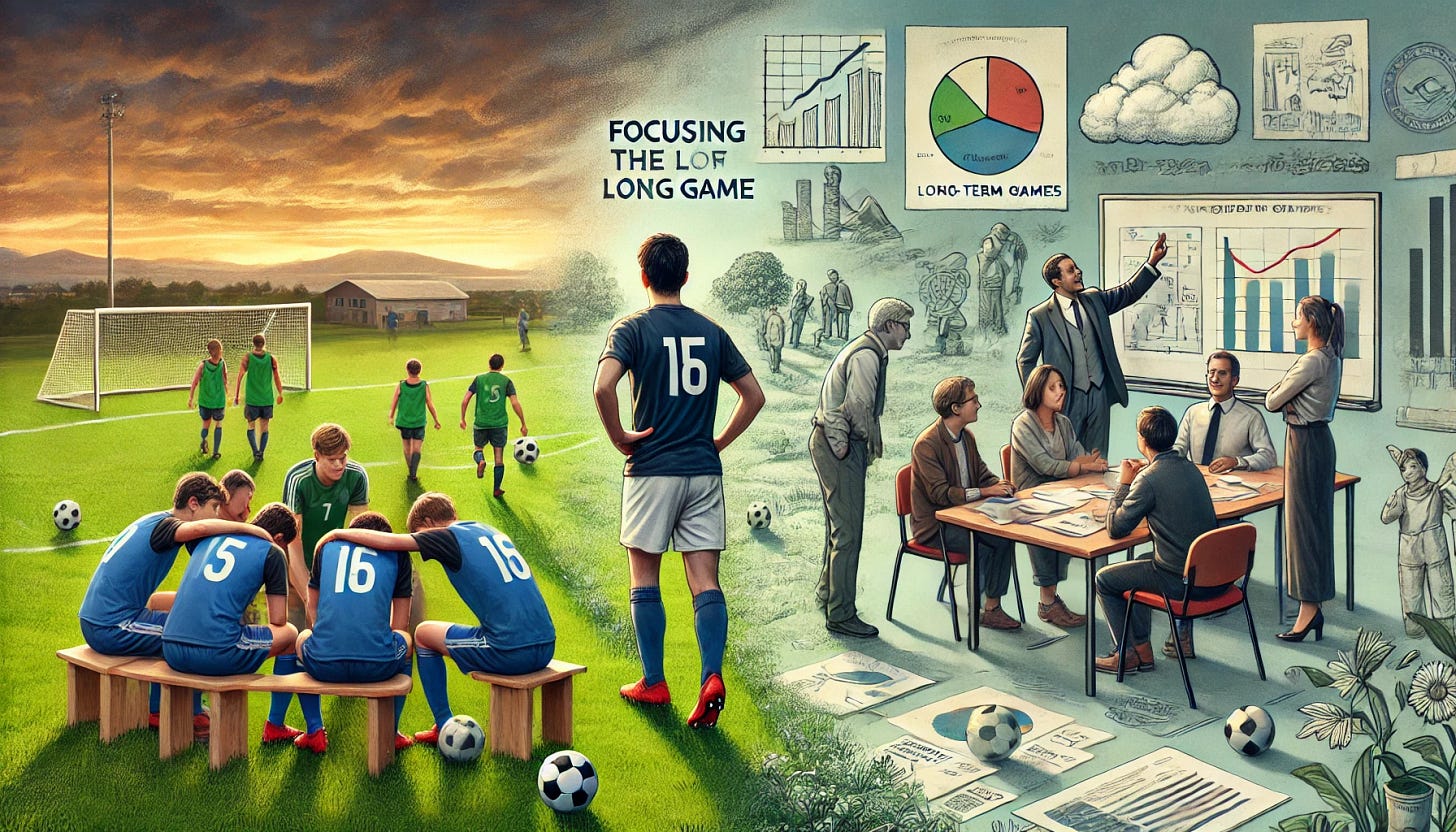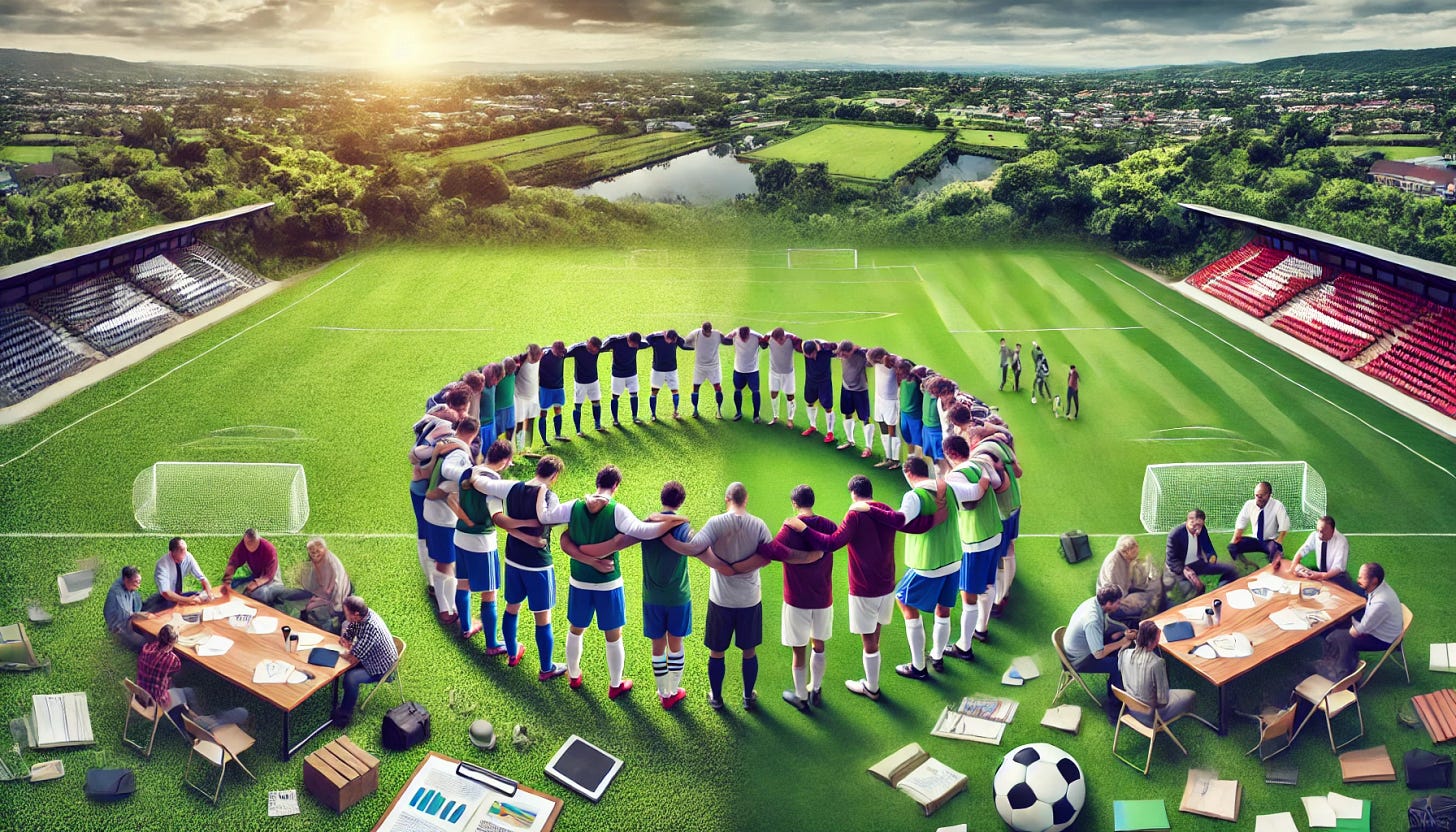How I Learnt To Support Communities On The Football Pitch
Community management and football really go hand in hand
Anyone who knows me personally knows how much I love watching football. I have been a Manchester United fan for about 15 years. On a recent trip to Prague, I found myself in a Czech pub with a team member watching the El Clasico among a rather passionate group of FC Barcelona and Real Madrid fans. The environment was absolutely fabulous, by the way, which you can get a glimpse of here:
Whether you enjoy football or not, you can’t deny that football has a special power of bringing people together. As I’ve worked with different communities over the last few years, I’ve realized how similar these two worlds are. The lessons I’ve learned on the field have helped me become better at working with people off the field too. Therefore, in this issue, I will share some powerful lessons football taught me which have helped me build better communities.
Lesson 1: Shared Goals Bring Us Together
In football, every player is driven by the same goal: winning. No matter where you come from or what your role is, the goal unites everyone. Communities are the same. Whether we’re solving a problem, learning something new, or just building meaningful connections, it’s the shared purpose that keeps us working together.
When we focus on what we want to achieve as a group, it becomes easier to set aside differences and move in the same direction.
Lesson 2: Everyone Has Something To Offer
Just like every football team has defenders, midfielders, and strikers, every member of a community brings something valuable to the table. Some bring skills, others offer fresh ideas, and some have a unique perspective that sparks inspiration.
It’s not about being the best at everything—it’s about recognizing that each person’s contribution matters and plays a part in the bigger picture. When people feel valued for what they bring, it creates room for trust and growth.
Lesson 3: Take Ownership Of Your Role
Football players have to know their position on the field and play it well. If someone doesn’t take responsibility, the whole team struggles. The same goes for communities. We need people to own their roles, whether it’s organizing events, leading initiatives, or offering support.
When everyone holds themselves accountable, things run smoothly, and it allows teams and communities to function better, together and individually.
Lesson 4: No One Is Bigger Than The Team
On the field, no one can do it alone—not even the star player. And the same applies to communities. It’s important to understand that everyone plays a role, and no single person is indispensable. If a community depends too heavily on one person, it can create unnecessary pressure and imbalance.
When everyone works with humility, things flow better. The magic happens when we all show up, do our part, and celebrate what we accomplish together.
Lesson 5: Focus On The Long Game
While it’s fun to celebrate small wins—like a victory in a single match—both football and communities need a long-term mindset to thrive. Sometimes, losses teach us more than wins. In the moment, setbacks can feel tough, but they often help us prepare for bigger opportunities.
Whether you’re on the pitch or working with people, it’s essential to think beyond short-term goals and keep the bigger picture in mind.
Lesson 6: Taking Risks Is Part Of The Game
Some of the most exciting moments in football come from bold plays—an unexpected pass, a risky shot on goal. Communities thrive in much the same way. Taking risks and experimenting with new ideas keeps things moving forward. Not every risk will succeed, and that’s okay.
The important thing is to learn from every experience and keep trying. Some of the best outcomes come from taking the leap, even when you’re not sure what will happen.
Lesson 7: Enjoy The Process
The best football players aren’t just talented—they love the game. The same is true of community work. People who enjoy what they do bring energy and joy to those around them. It’s not always easy, but finding moments of fun and meaning along the way makes the effort worthwhile.
At the end of the day, it’s the journey that matters, not just the result. When we enjoy the process, success becomes a natural part of the experience.
Conclusion
Working with communities has felt a lot like being part of a football team. Both require people to come together with a shared goal, bring their unique strengths, and play their part with humility and accountability. Whether you’re building a community or playing on the pitch, it’s about focusing on the long game, constantly working together, taking risks, and enjoying every step along the way.
So, if you find yourself on a football field or in the middle of a community initiative, remember that it’s the people, the process, and the shared experience that truly make the difference.





